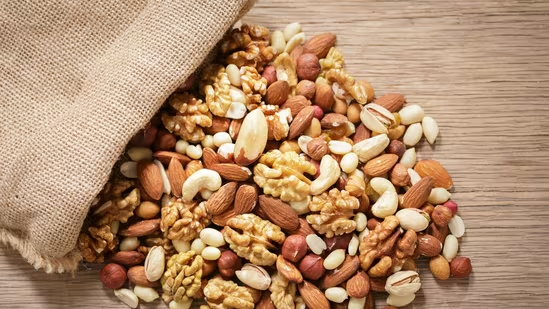Home / life-style / Empowering Lives: Lifestyle Changes Could Slash St
Empowering Lives: Lifestyle Changes Could Slash St
By: My India Times
2 minutes read 48Updated At: 2024-10-30

BENGALURU: Stroke remains a pressing health crisis in India, impacting 145 individuals per 100,000 annually, translating to a stroke every 20 seconds. Alarmingly, without prompt treatment, 30% of these patients do not survive, while another 30% endure debilitating long-term effects. Dr. Sunil V. Furtado, HOD and Senior Consultant at the Department of Neurosurgery, Ramaiah Institute of Neurosciences, emphasizes the urgent need for improved awareness and infrastructure surrounding stroke care.
Dr. Furtado explains that a staggering 99% of stroke patients do not receive optimal treatment due to a lack of understanding of stroke symptoms, insufficient resources at primary care facilities, and a failure to refer cases to specialized stroke centers. “Every second counts in a stroke emergency,†he notes. “Recognizing the symptoms early and acting swiftly can save lives.â€
Raising Awareness Through Sports and Physical Activity
In an effort to combat this crisis, the World Stroke Association has launched its annual campaign focusing on the emotional power of sports and physical activity to raise awareness about strokes. “The campaign aims to highlight the critical importance of prevention and rehabilitation through community engagement,†Dr. Sunil added.
Stroke can strike anyone at any time, making it imperative for the public to understand risk factors and symptoms. Lifestyle choices play a pivotal role in stroke prevention, with conditions such as heart disease, diabetes, hypertension, and high cholesterol significantly increasing risk.
Transformative Lifestyle Changes: A Path to Prevention
Dr. Furtado insists that making proactive lifestyle changes can reduce stroke risk by an impressive 90%. “Incorporating regular physical activity, quitting smoking, and moderating alcohol consumption are key,†he emphasizes. “These changes can drastically lower the likelihood of experiencing a stroke.â€
To promote this message, Medicover Hospital Whitefield held a comprehensive Stroke Awareness Programme on October 29, uniting healthcare professionals, stroke survivors, families, and community members in a collaborative effort to tackle stroke prevention.
Routine Screenings and Early Detection
Consultant Neurologist Dr. Poonam C. Awatare reinforced the significance of routine screenings, especially for high-risk individuals. “Strokes are not just a concern for the elderly; they can affect younger populations as well,†she stated. “Early detection through regular check-ups and lifestyle adjustments is crucial for prevention.â€
The awareness initiative also seeks to educate the public about recognizing stroke symptoms using the acronym FAST: Face drooping, Arm weakness, Speech difficulties, and Time to call emergency services.
A Call to Action
As India grapples with the rising incidence of stroke, healthcare professionals urge the public to prioritize their health through lifestyle modifications and increased awareness. By fostering a culture of prevention and timely intervention, the fight against stroke can gain momentum, potentially saving countless lives.
....BENGALURU: Stroke remains a pressing health crisis in India, impacting 145 individuals per 100,000 annually, translating to a stroke every 20 seconds. Alarmingly, without prompt treatment, 30% of these patients do not survive, while another 30% endure debilitating long-term effects. Dr. Sunil V. Furtado, HOD and Senior Consultant at the Department of Neurosurgery, Ramaiah Institute of Neurosciences, emphasizes the urgent need for improved awareness and infrastructure surrounding stroke care.
Dr. Furtado explains that a staggering 99% of stroke patients do not receive optimal treatment due to a lack of understanding of stroke symptoms, insufficient resources at primary care facilities, and a failure to refer cases to specialized stroke centers. “Every second counts in a stroke emergency,†he notes. “Recognizing the symptoms early and acting swiftly can save lives.â€
Raising Awareness Through Sports and Physical Activity
In an effort to combat this crisis, the World Stroke Association has launched its annual campaign focusing on the emotional power of sports and physical activity to raise awareness about strokes. “The campaign aims to highlight the critical importance of prevention and rehabilitation through community engagement,†Dr. Sunil added.
Stroke can strike anyone at any time, making it imperative for the public to understand risk factors and symptoms. Lifestyle choices play a pivotal role in stroke prevention, with conditions such as heart disease, diabetes, hypertension, and high cholesterol significantly increasing risk.
Transformative Lifestyle Changes: A Path to Prevention
Dr. Furtado insists that making proactive lifestyle changes can reduce stroke risk by an impressive 90%. “Incorporating regular physical activity, quitting smoking, and moderating alcohol consumption are key,†he emphasizes. “These changes can drastically lower the likelihood of experiencing a stroke.â€
To promote this message, Medicover Hospital Whitefield held a comprehensive Stroke Awareness Programme on October 29, uniting healthcare professionals, stroke survivors, families, and community members in a collaborative effort to tackle stroke prevention.
Routine Screenings and Early Detection
Consultant Neurologist Dr. Poonam C. Awatare reinforced the significance of routine screenings, especially for high-risk individuals. “Strokes are not just a concern for the elderly; they can affect younger populations as well,†she stated. “Early detection through regular check-ups and lifestyle adjustments is crucial for prevention.â€
The awareness initiative also seeks to educate the public about recognizing stroke symptoms using the acronym FAST: Face drooping, Arm weakness, Speech difficulties, and Time to call emergency services.
A Call to Action
As India grapples with the rising incidence of stroke, healthcare professionals urge the public to prioritize their health through lifestyle modifications and increased awareness. By fostering a culture of prevention and timely intervention, the fight against stroke can gain momentum, potentially saving countless lives.
By: My India Times
Updated At: 2024-10-30
Tags: life-style News | My India Times News | Trending News | Travel News
Join our WhatsApp Channel












































































































.png)
 (1).png)























